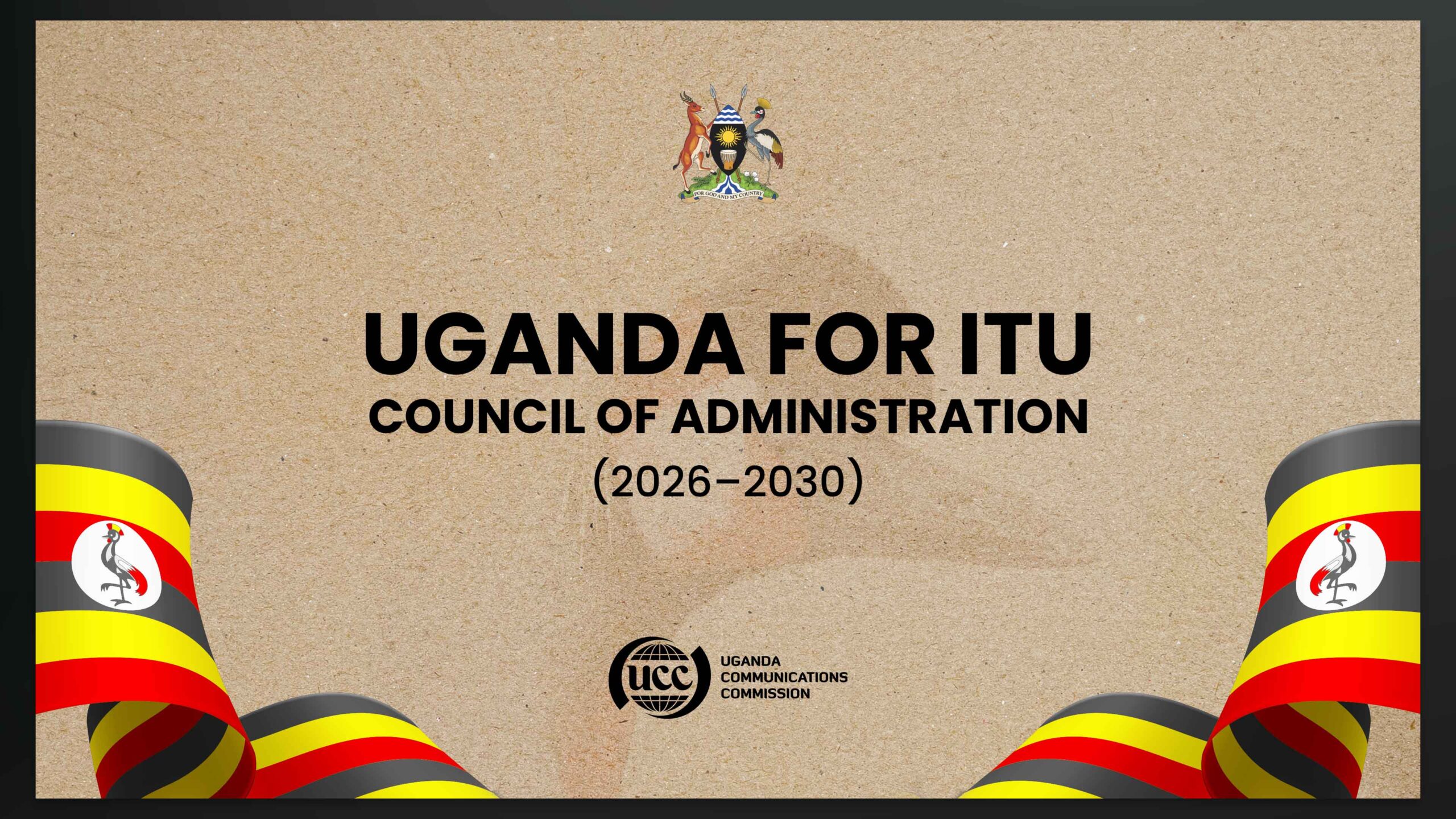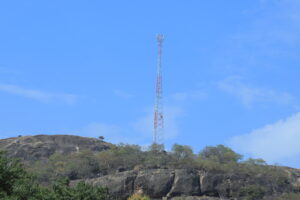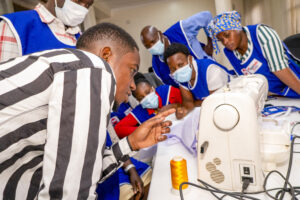KAMPALA, February 10, 2026 – Between September 2024 and February 2025, Ernest Edengel used his communication…
UGANDA’S CANDIDATURE FOR THE ITU COUNCIL SEAT (2026–2030 CYCLE)

Uganda has the honour to present its candidature for election to the International Telecommunication Union (ITU) Council of Administration for the 2026–2030 cycle.
As a Member State of the ITU since 1963, Uganda has worked closely with the Union to implement projects that advance connectivity, promote digital inclusion, and strengthen regulatory and institutional frameworks.
The country’s progress in ICT development, anchored by the Uganda Communications Commission (UCC), demonstrates its readiness to continue contributing meaningfully to ITU’s governance and strategic direction.
Uganda’s candidature builds upon its distinguished record of service on the ITU Council (2014-2018; 2018 – 2022; 2022-2026), its leadership in regional coordination, as well as active participation in ITU’s technical, policy, and standardisation activities.
MEMBERSHIP OF THE COUNCIL
The Council is made up of 48 Member States geographically demarcated in regions as follows.
- Region A (Americas): 9 seats
- Region B (Western Europe): 8 seats
- Region C (Eastern Europe and Northern Asia): 5 seats
- Region D (Africa): 13 seats
- Region E (Asia and Australasia): 13 seats
UGANDA’S PARTNERSHIP WITH ITU
Uganda’s digital transformation journey is deeply rooted in collaboration with the ITU. Through targeted partnerships, Uganda has implemented impactful projects that bridge the digital divide and promote ICT-driven development.

- Infrastructure Development and Connectivity
Through ITU’s Africa Broadband Mapping Project, Uganda accessed advanced data on broadband availability, enabling strategic deployment of connectivity through the Uganda Communications Universal Service and Access Fund (UCUSAF). This has extended broadband coverage to schools, health centres, and rural communities.
Uganda has also leveraged ITU’s support for satellite and spectrum coordination, leading to the successful launch of PearlAfricaSat-1—Uganda’s first satellite, facilitated by ITU’s orbital slot and frequency allocation frameworks.
- Cybersecurity and Digital Financial Services
With ITU’s assistance, Uganda established the Uganda Computer Emergency Response Team (UG-CERT), enhancing national cybersecurity and resilience. The subsequent creation of the DFS Security Lab, an ITU-supported initiative, strengthened the safety of mobile money systems that serve millions of Ugandans.
- Capacity Building and Knowledge Exchange
Uganda has actively participated in ITU’s Academy programmes, World Radiocommunication Seminars, and World Telecommunication/ICT Indicators Symposiums, equipping Ugandan professionals with specialised skills in spectrum management, satellite coordination, and cybersecurity.
- Standardisation and Spectrum Management
Through regional frameworks such as the Harmonised Calculation Method for Africa (HCM4A) Agreement, Uganda has effectively managed cross-border spectrum coordination and reduced interference across its borders. The adoption of ITU’s E.164 numbering plan ensures global interoperability of Uganda’s communication networks.

HIGHLIGHTS FROM UGANDA’S TENURE AT THE ITU COUNCIL
As a member of the ITU Council since 2014, Uganda has played a key role in shaping the Union’s strategic direction and promoting digital inclusion globally.
- Shaping ITU’s Strategic Agenda: Uganda actively contributed to the development and adoption of the ITU Strategic Plan (2024–2028) under Resolution 71, emphasising universal connectivity, innovation, and capacity development.
- Leadership and Institutional Strengthening: Uganda served as Chair of the Council Working Group on the Use of the Six UN Languages, promoting inclusivity and multilingual participation in ITU’s work.
- Digital Inclusion and Partner2Connect: Uganda has been a strong advocate for the Partner2Connect initiative, mobilising over USD 250 million in rural connectivity investments to extend internet access to unserved areas.

- Hosting Global ITU Events: Uganda hosted the Global Symposium for Regulators (GSR-2024) in Kampala, reinforcing its commitment to ICT policy dialogue and innovation.

- Regional Coordination: Uganda effectively coordinated the African Group during the World Telecommunication Standardisation Assembly (WTSA-24), ensuring Africa’s common positions were reflected in global outcomes.
CAMPAIGN PILLARS FOR THE 2026–2030 COUNCIL CYCLE

Building on its achievements and aligned with the forthcoming outcomes of the 2026 Plenipotentiary Conference, Uganda’s campaign is anchored on five strategic priorities:
- Promoting Universal, Affordable, and Secure Connectivity: Uganda will champion initiatives that close the digital divide and accelerate the implementation of universal access strategies, particularly for landlocked and least developed countries.
- Advancing Digital Inclusion and Innovation: Uganda will support frameworks that empower youth, women, and marginalised communities through digital literacy, innovation hubs, and entrepreneurship ecosystems.

- Strengthening ICT Infrastructure and Emerging Technologies: Uganda will advocate for sustainable investment in broadband, satellite communications, and emerging technologies such as AI, IoT, and 5G as enablers of socio-economic transformation.
- Enhancing Cybersecurity and Trust in ICTs: Building on its experience with ITU-supported cyber initiatives, Uganda will promote a secure and resilient digital ecosystem guided by global best practices and collaboration.
- Deepening Global and Regional Cooperation: Uganda will reinforce the principles of multilateralism and consensus-building, working through regional bodies such as the East African Communications Organisation (EACO) and the African Union to align Africa’s priorities with ITU’s global agenda.
UGANDA’S COMMITMENTS IF ELECTED
- Active and constructive participation in the governance of the Union, contributing to policy coherence and financial sustainability.
- Championing inclusivity to ensure that all Member States, regardless of size or capacity, have equitable opportunities in ITU activities.
- Promoting sustainable ICT development by aligning ITU initiatives with the Sustainable Development Goals (SDGs) and World Summit on the Information Society (WSIS) Action Lines.
- Encouraging partnerships between governments, the private sector, and development agencies under the Partner2Connect framework to accelerate digital transformation.
CONCLUSION
Uganda’s candidacy is founded on a track record of delivery, experience, and visionary leadership in ICT development. The country brings the following to the ITU Council:
- Proven experience in managing complex regulatory and policy frameworks.
- Strong technical expertise in broadband, cybersecurity, satellite communication, and ICT innovation.
- Commitment to multilateral cooperation and regional solidarity.
- A results-oriented approach aligned with ITU’s global mission of connecting the world.
Uganda respectfully requests the valued support of Member States for its candidature to the ITU Council for the 2026–2030 cycle to advance a connected, secure, and inclusive digital future for all.



